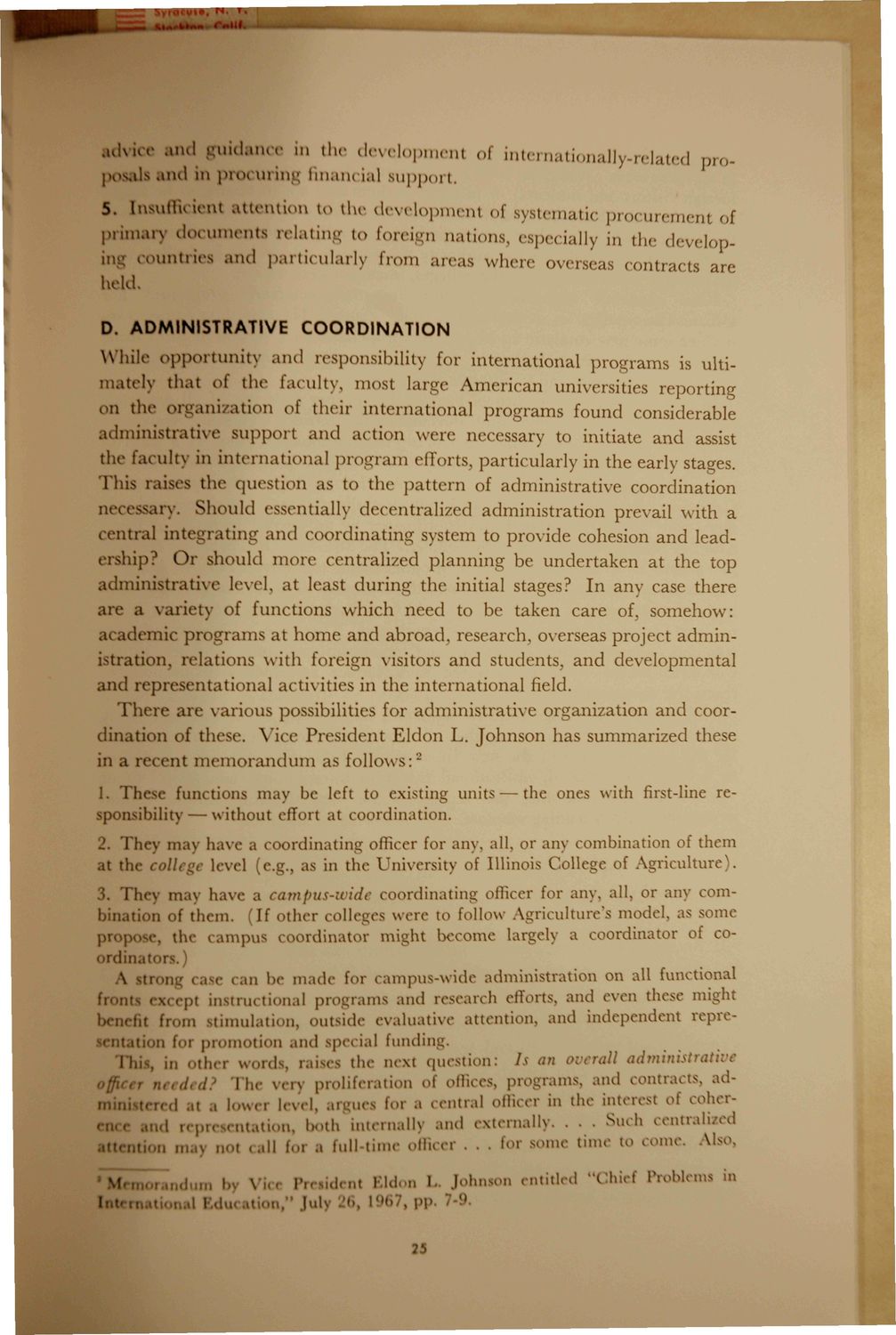| |
| |
Caption: Planning Report - Future of International Programs (1968)
This is a reduced-resolution page image for fast online browsing.

EXTRACTED TEXT FROM PAGE:
w d guidance in the development of internationally-related proposals and in procurin financial support. 5. Insudh n\ attention to the development of systematic pro< urement of primarj documents relating to foreign nations, especially in the develop" counti s and particularly from areas where oven is contracts are held. D. ADMINISTRATIVE COORDINATION While opportunity and responsibility for international programs is ultimately that of the faculty, most large American universities reporting n the 01 inization o( their international programs found considerable administrative support and action were necessary to initiate and assist the facult) in international program efforts, particularly in the early stages. This raises the question as to the pattern of administrative coordination ne ssary. Should essentially decentralized administration prevail with a ntral integrating and coordinating system to provide cohesion and leadrship? Or should more centralized planning be undertaken at the top administratis level, at least during the initial stages? In any case there are a variety of functions which need to be taken care of, somehow: academic programs at home and abroad, research, overseas project administration, relations with foreign visitors and students, and developmental and representational activities in the international field. There are various possibilities for administrative organization and coordination of these. Vice President Eldon L. Johnson has summarized these 2 in a l 'nt memorandum as follows: ^ **.w ..«.wM* " - " - , 1 These functions may be left to existing units — the ones with first-line reponsibility — without effort at coordination. 2. The) may have a coordinating officer for any. all, or any combination of them If the collt level ( J., as in the University of Illinois College of Agriculture). 3. The may have a campus-wide coordinating officer for any. all, or any combination of them. (If other colleges were to follow Agriculture's model, as some pro| the i mpus coordinator might become largely a coordinator of coordinati ) A e can be m a d e for campus-wide administration on all functional from II, pt instructional programs and research efforts, and even these might m otln be fit from timulation, outside evaluative attention, and independent repre' ntation f<»i promotion and Special funding. words, raia th< next question: Is an overall administrate rh< very proliferation of offices, programs, and conti adminisn i ., lowei level, argues for a central officer in the interest I coherI repn ntation, both internally and externally, . . . Such centralized not ,|| f0| a lull tun. officer . , . for Some time to come. Als I i, \ ; Bducal m p, idem Eldon L Johnson entitled "Chief Problems in I 1967, pp. 9. 25
| |